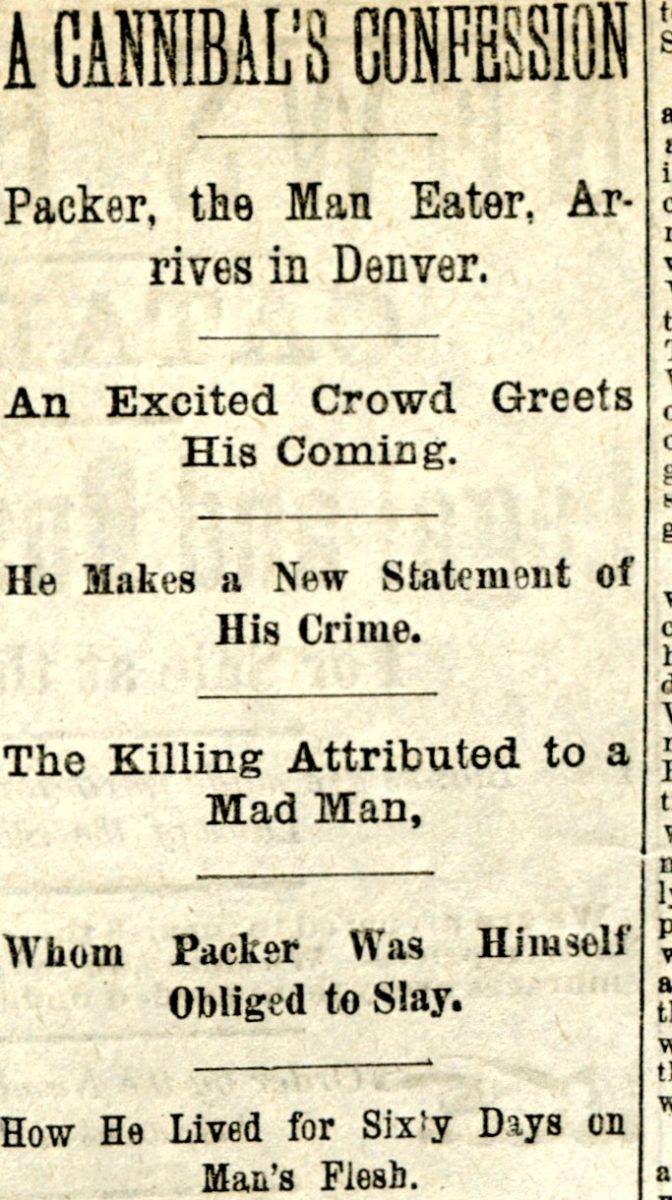Netflix’s Monster series has stoked the flames in true crime fanatics, with episodes on infamous killers like Ed Gein, the Butcher of Plainfield, and Jeffrey Dahmer, the Milwaukee Cannibal.
Colorado is the fifth-most-obsessed state when it comes to searches for ‘true crime’ content on the web, and while national headlines often spotlight notorious figures like Dahmer and Gein, Colorado has its own chilling chapter in true crime history, one that begins in the snowy mountains and ends with a man known as The Man Eater.
Alfred Packer, a man convicted of cannibalism in 1883, was sentenced to 40 years. The Fremont County Record published the full story that year, stating that Packer was a mountain guide leading a group of gold prospectors through the Colorado mountains in 1873.
Packer convinced five of the men to take a ‘short-cut’ across the mountains, a decision that would end in calamity. When he returned from the mountains, the men were missing, raising immediate suspicion.
Though he denied knowing anything, possession of their belongings raised further suspicion. In his final account, given during interrogation, Packer claimed that Shannon Bell (one of the five men) killed the others, and that he killed Bell in self-defense before resorting to cannibalism to survive. Investigators later found the bodies, four of them lying side by side, contradicting Packer’s claim that the men had died at different times along the trail.
After his arrest, Packer escaped and remained at large for nearly a decade. Captured in Wyoming and sentenced to 40 years, he contested being guilty of all five murders, only admitting to killing (and eating) Bell.
Eighteen years into his sentence, Colorado Governor Charles Thomas signed a conditional pardon, releasing Packer on parole in 1901, so long as he did not commit another cannibalistic crime. In The Littleton Independent, many Coloradans believed Packer had suffered enough: “When a man is crazed with hunger and cold, there are at least mitigating circumstances to be urged if he commits a crime.”
Today, a trail and museum exhibit preserve the memory of the case. Though controversy remains, Packer’s dying words, recorded in The Littleton Independent in 1907, were: “I’m not guilty of the charge.”
As true crime continues to dominate streaming platforms worldwide, Colorado’s own chilling legend stands alongside the most infamous names in history. Packer’s headstone still stands in Littleton Cemetery, a haunting reminder that true crime isn’t always confined to headlines; it can be buried in the backyard.










